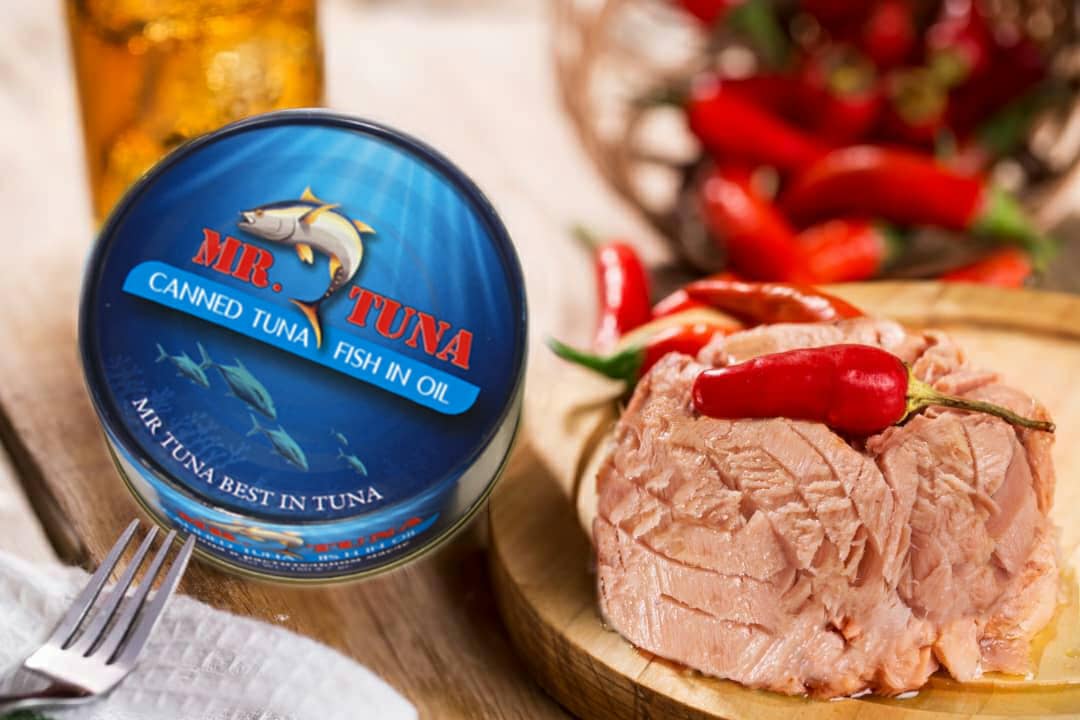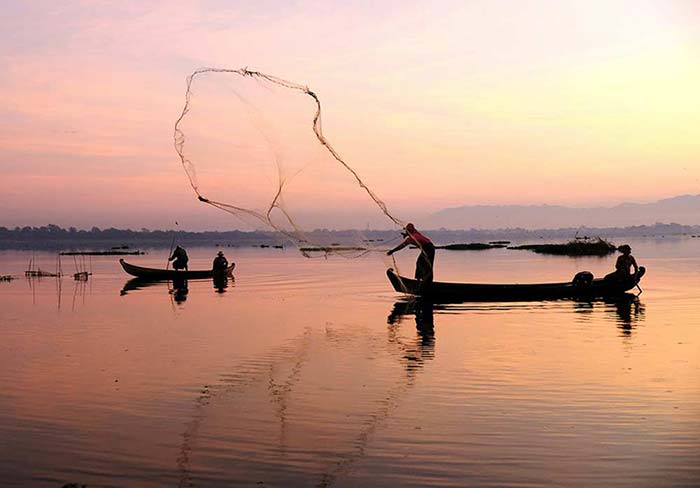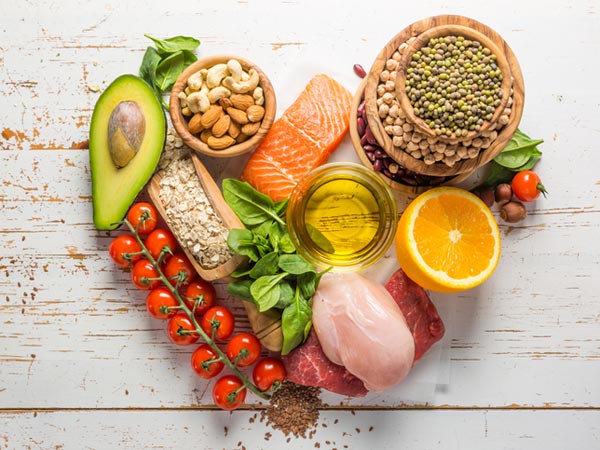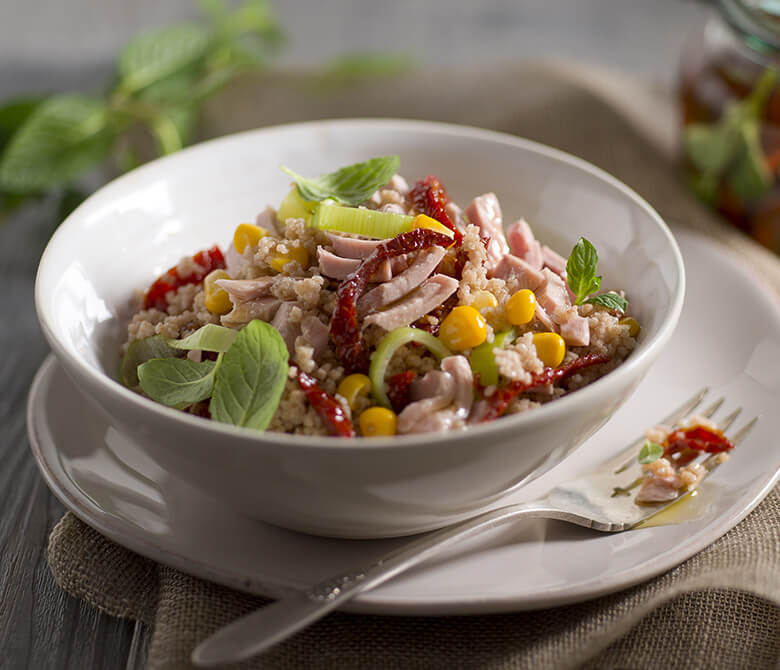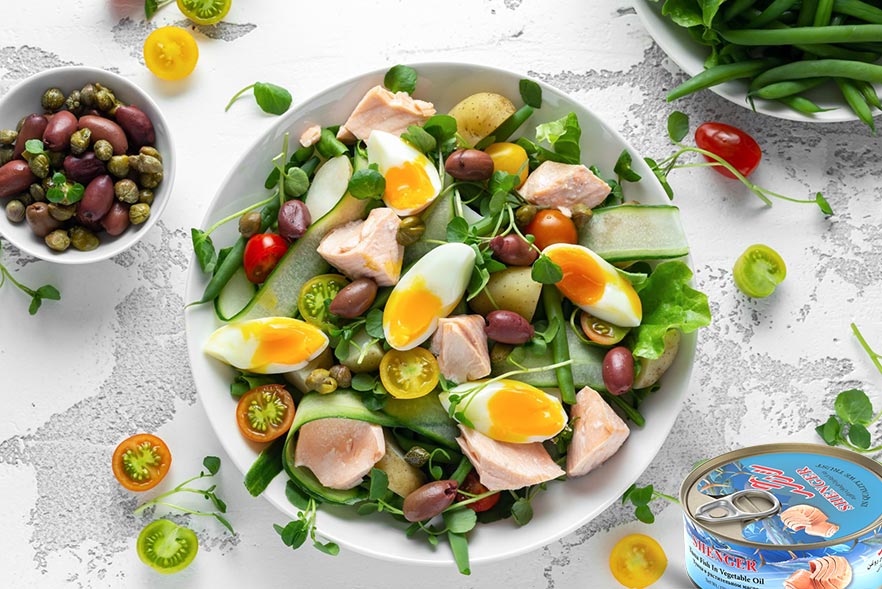

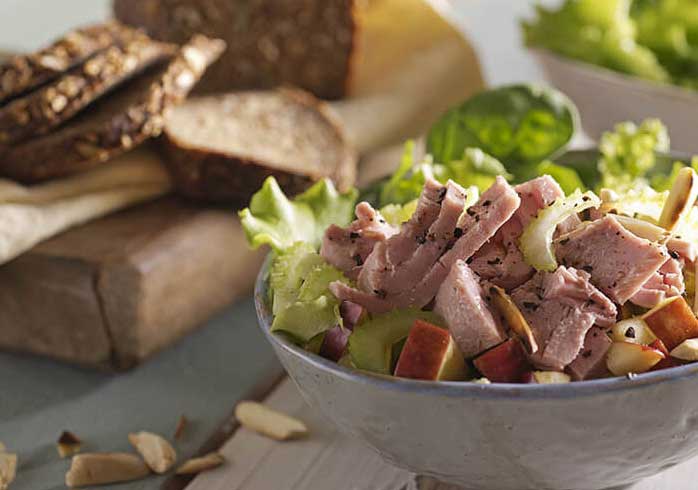
















The energy of half a banana is equal to the energy of 80 grams of natural tuna, but it has only 1/10 of the protein in tuna. It is recommended for athletes who have a snack with bananas to use tuna for snacks.
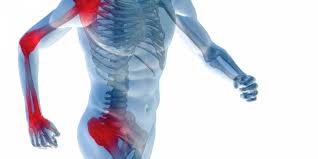

Nutrition in everyday life is very important for an athlete. To achieve the best exercise, it is possible to digest food effectively, thereby reducing blood flow to the gastrointestinal tract and providing more oxygen to the muscles. One of the most beautiful foods in the diet is canned tuna.
Especially when in canned salt water with about 100 kcal per 100 g, the versatility and digestibility of tuna brings it as a staple in many recipes to suit everyone's taste. Canned tuna is a real ally for those who are interested in a lifestyle based on well-being and movement, because it reduces weight (especially in the abdomen), improves muscle and function, and helps to stay lean; Tuna is an excellent source of omega-3, protein, niacin, potassium, selenium, and vitamin B12.
One of the properties of tuna is Undoubtedly, the very high amount of its proteins is 25 grams per 100 grams of product. While some vitamins and minerals are lost during canning, protein levels in tuna remain intact. Unlike a sedentary lifestyle, people who exercise may need more than 1.2 to 1.5 grams of protein per kilogram of body weight per day, which is about 15% of the calories from total daily nutrition. To meet this need, in terms of oil or salt water, canned tuna is a highly biologically valuable foodstuff that contributes to the optimal amount of essential and non-essential amino acids. This helps to improve protein synthesis and in turn ensures the tone and efficiency of the locomotor system. It is essential for the synthesis of hormones and lysine transporters of tuna rich in essential neural lysine to optimize total work activity; Along with phosphorus, a constituent of all cellular and calcium membranes, it is essential for countless biological functions, including muscle contraction. Foods are in a healthy and balanced diet. According to experts, tuna should be eaten ideally one or two hours before exercise or immediately after physical activity. This fresh snack is the best way to counteract muscle commitment or replenish lost protein during exercise.
